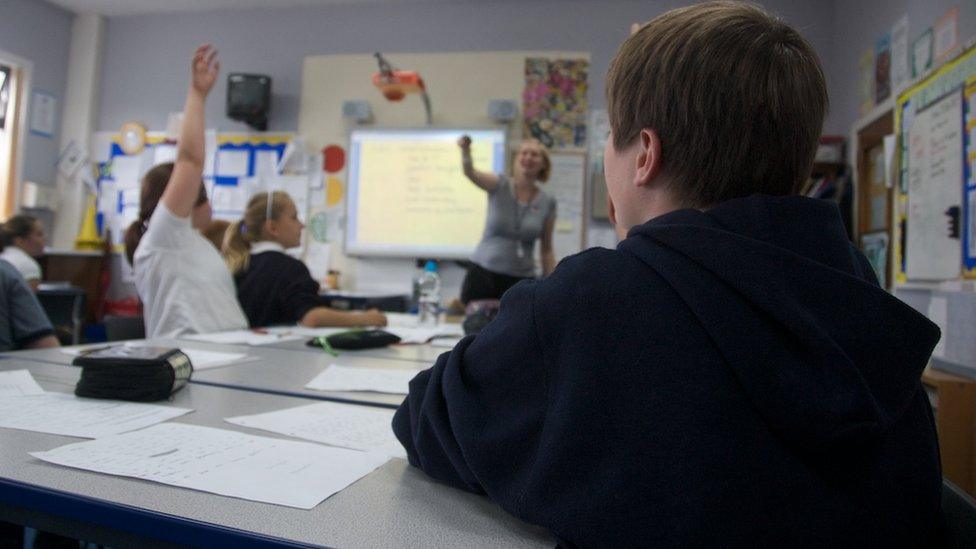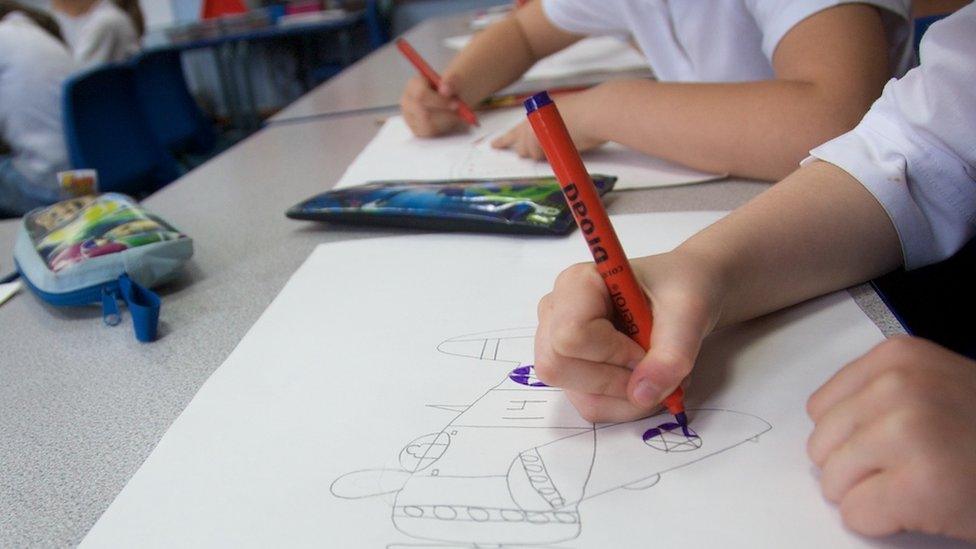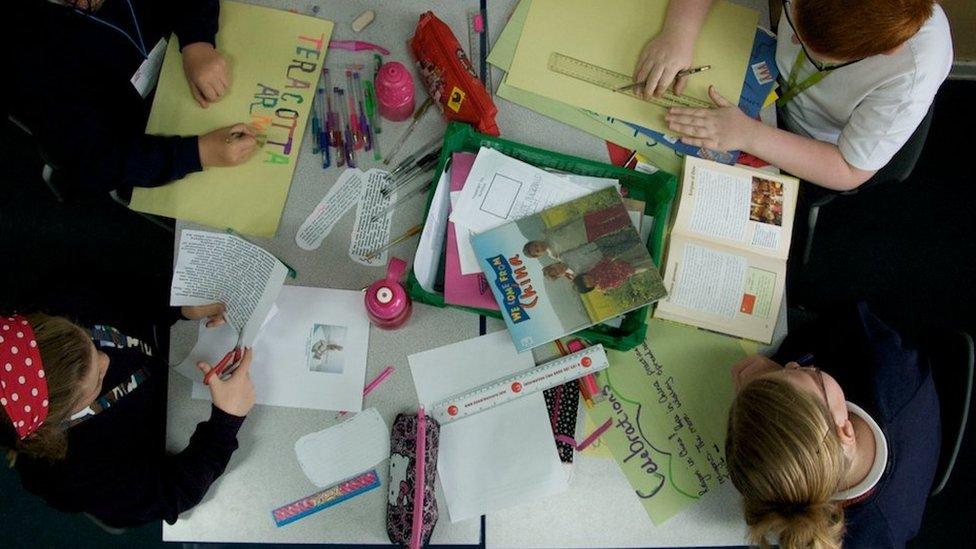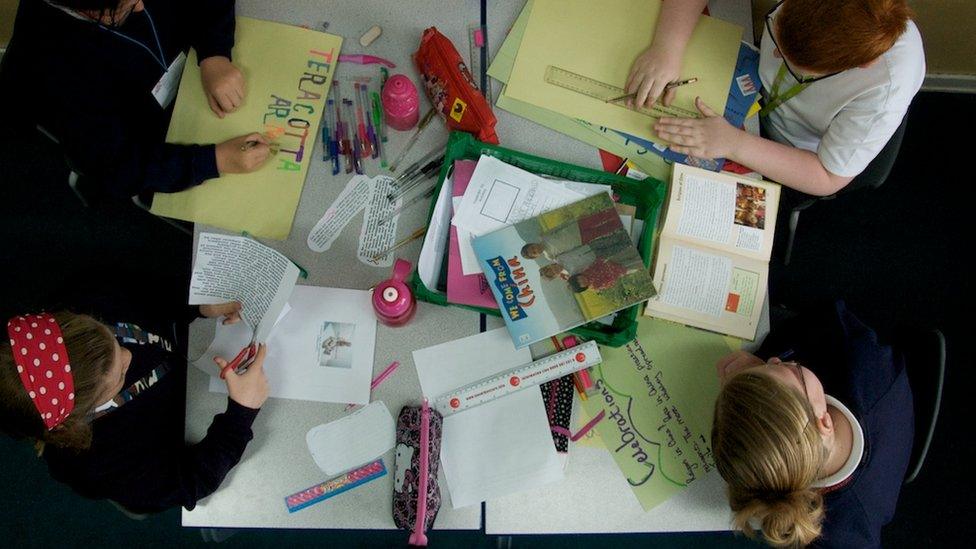Schools share £120m in bid to close attainment gap
- Published
- comments

Almost 2,400 schools across Scotland will share more than £120m as part of Scottish government efforts to close the attainment gap.
Education Secretary John Swinney confirmed 2,387 schools would receive money from the £750m Pupil Equity Funding scheme in 2018-19.
Schools in Glasgow will benefit from more than a sixth of the cash.
They will receive a total of almost £22m to help fund improvements at 191 schools.
The amount of money each school will get is linked to the number of pupils it has receiving free school meals, with the money going directly to head teachers, allowing them to choose how to use the resources.
Mr Swinney announced the allocations to areas and schools ahead of the visit to St Francis RC Primary School in Dundee, where staff used part of the cash they received in 2017-18 to set up six week-long summer schools focused on boosting literacy, numeracy and wellbeing for pupils in the most deprived areas.
'Significant impact'
He said: "Every child should have the best possible start in life, no matter their background. Schools have a significant role to play in ensuring every child is given the right support to help them achieve their full potential.
"Our priority is to close the poverty-related attainment gap. This £120m of Pupil Equity Funding is aimed at doing just that.
"The funding is targeted towards schools who have the highest numbers of pupils receiving free school meals, so that the money is spent on the children who need it most."

He added: "Last year's allocation is already making a big impact. I have visited a number of schools up and down the country where this funding has empowered teachers to put in place creative new initiatives that are tackling the attainment gap in their schools right now."
Neil Lowden, head teacher of St Francis RC Primary School, said the cash from the scheme "has had a significant impact on how I have managed my school in terms of the absolute focus on raising attainment in literacy and numeracy as well as improving outcomes in health and wellbeing for the children in St Francis".
He added: "As a head teacher, the Pupil Equity Funding has fundamentally allowed our school community to make a real and significant difference to the lives of the children who come through our doors every day."
Temporary posts
Seamus Searson, general secretary of the Scottish Secondary Teachers' Association (SSTA), said: "The identification of funds to those pupils who need support is always helpful but unfortunately, it is replacing other support that has been lost during a continuous programme of education cuts.
"Schools always want to make a difference to those most disadvantaged with additional teachers to assist access to the curriculum and increase inclusion to activities that most other children take for granted.
"The major worry is the sustainability of the funding and the major investment in permanent highly-qualified professionals.
"The current arrangement has seen a large number of temporary posts being created that are not in the interest of the children who need regular and committed professionals to support them through their education journey."
He added: "PEP funding is a start but it cannot close, with the present limited funding, the gap to give the most deprived the same education experience as the most advantaged."
The Scottish Parent Teacher Council said it had concerns about using free school meal claims as the basis for the allocation of funds.
Executive director Eileen Prior said: "We know there is some good work being done with the additional PEF funds but we are keen to see some hard evidence of impact on achievement and attainment."
- Published3 November 2017

- Published15 June 2017
